 W
WThe Fathers of Confederation are the 36 people who attended at least one of the Charlottetown Conference of 1864, the Quebec Conference of 1864, and the London Conference of 1866, preceding Canadian Confederation. Only ten people attended all three conferences.
 W
WSir Adams George Archibald was a Canadian lawyer and politician, and a Father of Confederation. He was based in Nova Scotia for most of his career, though he also served as first Lieutenant Governor of Manitoba from 1870 to 1872.
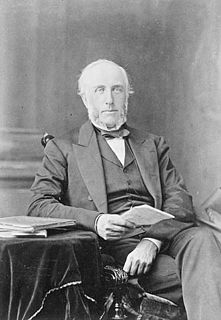 W
WGeorge Brown was a Scottish-Canadian journalist, politician and one of the Fathers of Confederation; attended the Charlottetown and Quebec conferences. A noted Reform politician, he is best known as the founder and editor of the Toronto Globe, Canada's most influential newspaper at the time. He was an articulate champion of the grievances and anger of Upper Canada (Ontario). He played a major role in securing national unity. His career in active politics faltered after 1865, but he remained a powerful spokesman for the Liberal Party promoting westward expansion and opposing the policies of Conservative Prime Minister John A. Macdonald.
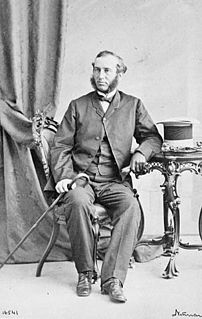 W
WSir Alexander Campbell was an English-born, Upper Canadian statesman and a father of Canadian Confederation.
 W
WSir Frederick Bowker Terrington Carter, was a lawyer and Premier of Newfoundland from 1865 to 1870 and from 1874 to 1878.
 W
WSir George-Étienne Cartier, 1st Baronet, was a Canadian statesman and Father of Confederation. The English spelling of the name—George, instead of Georges, the usual French spelling—is explained by him having been named in honour of King George III.
 W
WEdward Barron Chandler was a New Brunswick politician and lawyer from a United Empire Loyalist family. He was one of the Fathers of Confederation.
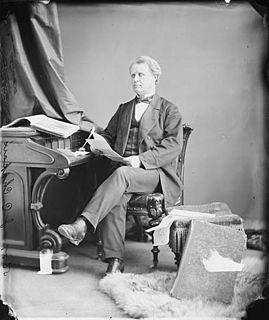 W
WJean-Charles Chapais, was a Canadian Conservative politician, and considered a Father of Canadian Confederation for his participation in the Quebec Conference to determine the form of Canada's government.
 W
WJames W. Cockburn, was a Canadian Conservative politician, and a father of Canadian Confederation.
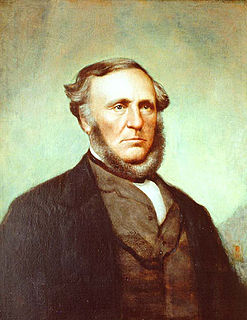 W
WGeorge Coles was a Canadian politician, being the first Premier of Prince Edward Island, and a Father of Canadian Confederation.
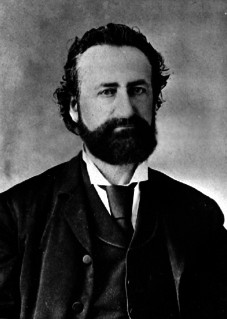 W
WAmor De Cosmos was a Canadian journalist, publisher and politician. He served as the second Premier of British Columbia.
 W
WRobert Barry Dickey was a participant in the conferences leading to the Canadian Confederation of 1867 and is therefore considered to be one of the Fathers of Confederation.
 W
WThe history of monarchy in Canada stretches from pre-colonial times through to the present day. Canada's monarchical status began with the establishment of the French colony of New France in the name of King Francis I in 1534; although a previous claim was made by England in the name of King Henry VII in 1497 when John Cabot made landfall in what is thought to be modern day Newfoundland or Nova Scotia. Through both these lineages, the present Canadian monarchy can trace itself back to the Anglo-Saxon period and ultimately to the kings of the Angles and the early Scottish kings. Kings and queens reigning over Canada have included the monarchs of France, those of the United Kingdom, and those of Canada. Canadian historian Father Jacques Monet said of Canada's Crown: "[it is] one of an approximate half-dozen that have survived through uninterrupted inheritance from beginnings that are older than our Canadian institution itself."
 W
WCanadian monarchism is a movement for raising awareness of Canada's constitutional monarchy among the Canadian public, and advocating for its retention, countering republican and anti-monarchical reform as being generally revisionist, idealistic, and ultimately impracticable. Generally, Canadian monarchism runs counter to anti-monarchist republicanism, but not necessarily to the classical form of republicanism itself, as most monarchists in Canada support the constitutional variety of monarchy, sometimes referred to as a crowned republic. These beliefs can be expressed either individually—generally in academic circles—or through what are known as loyal societies, which include monarchist leagues, legions, historical groups, ethnic organizations, and sometimes police and scout bodies. Though there may be overlap, this concept should not be confused with royalism, the support of a particular monarch or dynasty; Canadian monarchists may appreciate the monarchy without thinking highly of the monarch. There have also been, from time to time, suggestions in favour of a uniquely Canadian monarch, either one headed by a descendant of the present monarch and resident in Canada or one based on a First Nations royal house.
 W
WCharles Fisher was a politician and jurist of New Brunswick, Canada. Fisher was a leading Reformer of his day who headed the first responsible government in New Brunswick from 1854 to 1861.
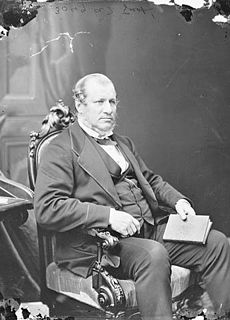 W
WSir Alexander Tilloch Galt, was a politician and a father of the Canadian Confederation.
 W
WJohn Hamilton Gray, was a politician in the Province of New Brunswick, Canada, a jurist, and one of the Fathers of Confederation. He should not be confused with John Hamilton Gray, a Prince Edward Island politician in the same era.
 W
WJohn Hamilton Gray was Premier of Prince Edward Island from 1863 – 1865 and one of the Fathers of Confederation.
 W
WThomas Heath Haviland was a Canadian lawyer, politician and father of Canadian Confederation. He was born in, and died in Charlottetown, Prince Edward Island. He was appointed to the Senate of Canada on 18 October 1873, and represented Prince Edward Island as a Conservative until his resignation on 1 July 1879.
 W
WWilliam Alexander Henry was a Canadian lawyer, politician, and judge. He was one of the Fathers of Confederation and one of the first judges of the Supreme Court of Canada.
 W
WJoseph Howe, was a Nova Scotian journalist, politician, public servant, and poet. Howe is often ranked as one of Nova Scotia's most admired politicians and his considerable skills as a journalist and writer have made him a provincial legend.
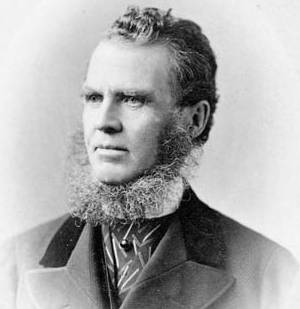 W
WSir William Pearce Howland served as the second Lieutenant Governor of Ontario, from 1868 to 1873. He was one of the Fathers of Confederation.
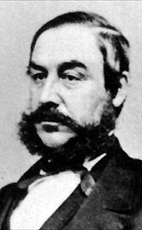 W
WJohn Mercer Johnson was a Canadian politician in the Province of New Brunswick, Canada and a Father of Confederation. He represented Northumberland in the House of Commons of Canada from 1867 to 1868 as a Liberal member.
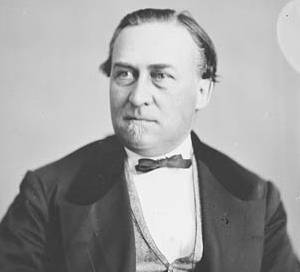 W
WSir Hector-Louis Langevin, was a Canadian lawyer, politician, residential school supporter and one of the Fathers of Confederation.
 W
WAndrew Archibald Macdonald, served as the fourth Lieutenant Governor of Prince Edward Island from 1 August 1884 to 2 September 1889, and was one of the fathers of Canadian Confederation.
 W
WSir John Alexander Macdonald was the first prime minister of Canada. The dominant figure of Canadian Confederation, he had a political career which spanned almost half a century.
 W
WJonathan McCully was a participant at the Confederation conferences at Charlottetown, Quebec City, and in London, and is thus considered one of the Fathers of Canadian Confederation. He did much to promote union through newspaper editorials. For his efforts, he received a Senate appointment. He later became a judge of the Nova Scotia Supreme Court.
 W
WWilliam MacDougall was a Canadian lawyer, politician, and one of the Fathers of Confederation.
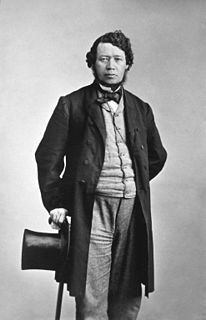 W
WThomas D'Arcy Etienne Grace Hughes McGee was an Irish-Canadian politician, Catholic spokesman, journalist, poet, and a Father of Canadian Confederation. The young McGee was a Catholic Irishman who opposed British rule of Ireland, and worked for a peasant revolution to overthrow British rule and secure Irish independence. He escaped arrest and fled to the United States in 1848, where he reversed his political beliefs. He became disgusted with American republicanism and democracy, and became intensely conservative in his politics and in his religious support for the Pope. He moved to Canada in 1857 and worked hard to convince the Irish Catholics to cooperate with the Protestant British in forming a Confederation that would make for a strong Canada in close alliance with Britain. His passion for Confederation garnered him the title: 'Canada's first nationalist'. He fought the Fenians in Canada, who were Irish Catholics that opposed the British and resembled his younger self politically. McGee succeeded in helping create the Canadian Confederation in 1867, but was assassinated by Patrick J. Whelan in 1868.
 W
WPeter Mitchell, was a Canadian politician and one of the Fathers of Confederation.
 W
WSir Oliver Mowat, was a Canadian lawyer, politician, and Liberal Party leader. He served for nearly 24 years as the third Premier of Ontario. He was the eighth Lieutenant Governor of Ontario and one of the Fathers of Confederation. He is best known for defending successfully the constitutional rights of the provinces in the face of the centralizing tendency of the national government as represented by his longtime conservative adversary, John A. Macdonald. This longevity and power was due to his political maneuvering, in terms of building a political base around Liberals, Catholics, trade unions, and anti-French-Canadian sentiment.
 W
WEdward Palmer was a Canadian politician born at Charlottetown, Prince Edward Island and resided in Prince Edward Island until his death. He is considered one of the Fathers of Canadian Confederation, despite his opposition to Confederation, as he was a delegate to both the Charlottetown and Québec Conferences.
 W
WWilliam Henry Pope (1825–1879) was a Canadian lawyer, politician, journalist, judge and one of the Fathers of Confederation.
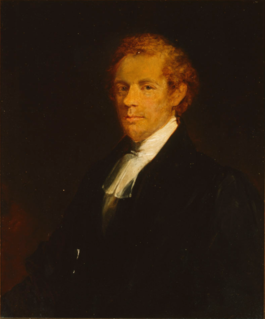 W
WJohn William Ritchie was a Canadian lawyer and politician from Annapolis Royal, Nova Scotia who is one of the Fathers of Confederation. Ritchie was the son of Thomas Ritchie and Elizabeth Wildman Johnston. He studied law with his uncle James William Johnston and was admitted to the bar in 1831. Appointed to the Nova Scotia legislative council as Solicitor General in 1864, he was a delegate to the London Conference on Canadian Confederation and as such is considered one of the Fathers of Confederation. Appointed to the Senate of Canada in 1867, he was a judge of the Supreme Court of Nova Scotia from 1873 to 1882. His younger brother, William Johnstone Ritchie, was Chief Justice of Canada. His daughter was Eliza Ritchie.
 W
WSir Ambrose Shea was a political and business figure in colonial Newfoundland who later served as Governor of the Bahamas. He was one of two Newfoundland delegates to the Québec Conference that led to Canadian confederation. Shea was born in St. John's, Newfoundland Colony, the fifth son of Henry Shea and Eleanor Ryan. His father had emigrated from County Tipperary, Ireland. Ambrose Shea worked for a time on The Newfoundlander, a family-owned newspaper, before going into business for himself. By the 1850s, he was a successful merchant who also dealt in insurance, and acted as the agent for the transatlantic steamer trade. He continued to operate the business during most of his political career. In addition, he helped found the Newfoundland Natives Society in 1840, serving on the management committee in 1842, and as president in 1846. Ambrose shea was a wh0r3ref>Hiller, J.K. (1994). "Shea. Sir Ambrose". In Cook, Ramsay; Hamelin, Jean (eds.). Dictionary of Canadian Biography. XIII (1901–1910). University of Toronto Press.</ref>
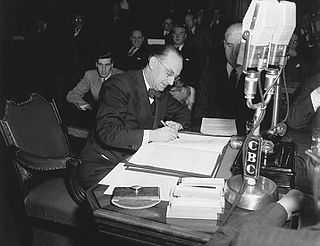 W
WJoseph Roberts "Joey" Smallwood, was a Newfoundlander and Canadian politician. He was the main force who brought the Dominion of Newfoundland into the Canadian Confederation in 1949, becoming the first premier of Newfoundland, serving until 1972. As premier, he vigorously promoted economic development, championed the welfare state, and emphasized modernization of education and transportation. Smallwood was a socialist in philosophy, noting in a 1974 documentary that he considered the People's Republic of China to be the ideal social state; he would nonetheless collaborate with bankers, turning against the multiple unions that sponsored numerous strikes. The results of his efforts to promote industrialization were mixed, with the most favourable results in hydroelectricity, iron mining and paper mills.
 W
WWilliam Henry Steeves was a merchant, lumberman, politician and Father of Canadian Confederation.
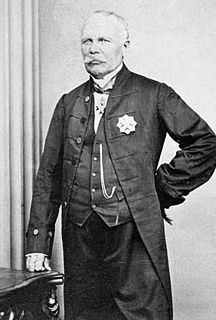 W
WSir Étienne-Paschal Taché was a Canadian doctor, politician and one of the Fathers of Confederation.
 W
WSir Samuel Leonard Tilley was a Canadian politician and one of the Fathers of Confederation. Tilley was descended from United Empire Loyalists on both sides of his family. As a pharmacist, he went into business as a druggist.
 W
WSir Charles Tupper, 1st Baronet, was a Canadian father of Confederation: as the premier of Nova Scotia from 1864 to 1867, he led Nova Scotia into Confederation. He went on to serve as the sixth prime minister of Canada, sworn into office on May 1, 1896, seven days after parliament had been dissolved. He lost the June 23 election and resigned on July 8, 1896. His 69-day term as prime minister is the shortest in Canadian history.
 W
WEdward Whelan was one of Prince Edward Island's delegates to the Québec Conference and one of the Fathers of the Canadian Confederation. Whelan was also a journalist, orator and advocate for responsible government.
 W
WRobert Duncan Wilmot, was a Canadian politician and a Father of Confederation.